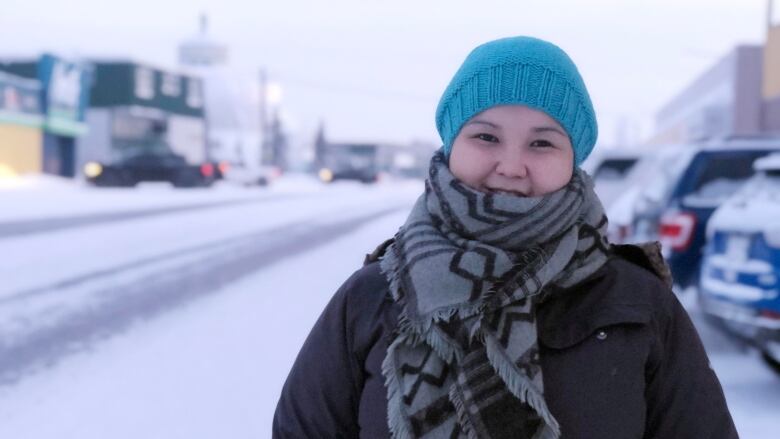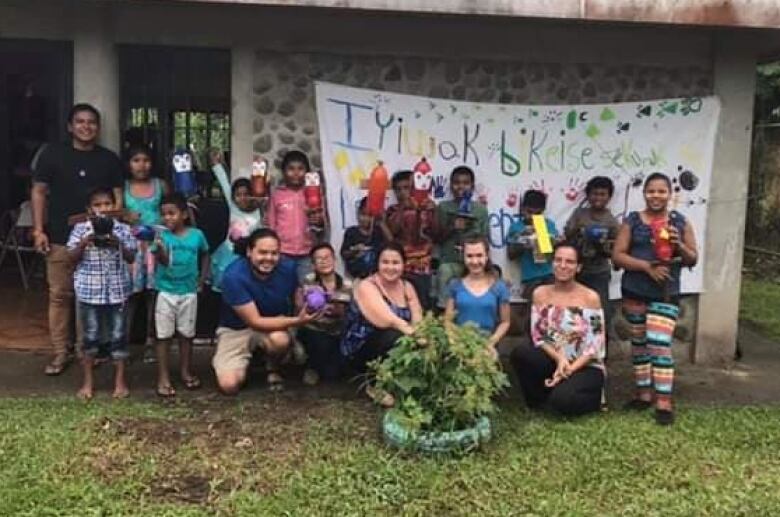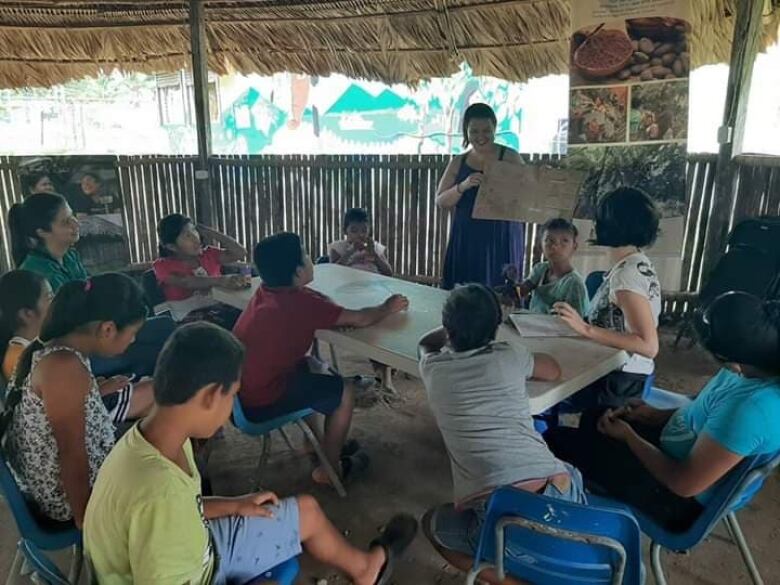Indigenous internship program 'once in a lifetime' chance for Ulukhaktok woman
Phylicia Kagyut grew up in Ulukhaktok, N.W.T., and had never left Canada before

Last winter, Phylicia Kagyut had just finished upgrading the courses she needed to get into a post-secondary institution.
She had planned to start school in the fall, but that changed when her sister showed her an ad on Facebook for the International Internships for Indigenous Youth Program an opportunity for her to leave her home in the North and see the world for the first time.
"I thought I'd put in my application. You never know, right?" said Kagyut, 25, who grew up in Ulukhaktok, N.W.T., and lives in Inuvik.
"This was a once-in-a-lifetime opportunity, and I didn't want to really turn that down."
To her surprise, there was an opening, and she was one of 20 young Indigenous adults across Canada chosen. Before long, she was off to Costa Rica.
The program, sponsored by Global Affairs Canada, is designed to connect young Indigenous people inCanada with their peers around the world.
Although the internship is available to all Indigenous adults between the ages of 18 and 35 who haven't received a post-secondary degree, it's targeted at residents in the Northern and Atlantic regions of Canada.

Despite getting some training in Ottawa, Kagyut found it difficult adapting to a warmer climate, a language barrier and bugs.
"Right off the bat was the weather, the humidity it took me about a month to acclimatize," said Kagyut. "There was a lot of bugs and that was really hard to deal with. Coming from the North, we don't get as much variety."
She said the small Indigenous community in Costa Rica where she lived during her internship reminded her of similar obstacles she saw back home, like having limited internet service and people trying to keep their culture and language alive.
This was a once in a lifetime opportunity, and I didn't want to really turn that down- Phylicia Kagyut
"The children in Costa Rica, as much as they do try to learn their traditional language they are losing their language as well," said Kagyut. "So just taking that back home with me that, even for myself, I need to try harder to learn my language and continue my own cultural practices."
Kagyut returned home in December and she's hoping to encourage more young adults, especially in the Arctic, to take advantage of this program.
She was in the second of five groups in what is a five-year program that also has internships in Kenya, Guyana, Myanmar, and Cambodia.

Eight young adults participated this year from the Northwest Territories and Yukon, but there has yet to be a participant from Nunavut, according to organizers.
"We'd love to have someone from Nunavut," said Tracey Wallace, the executive director of the Northern Council for Global Co-Operationand one of the organizers behind the program.
Wallace said the program will start taking applications for later this year in the next couple of months, and will begin at the end of the summer.
"There's a lot of growth that happens from the beginning to the end and the internship," she said.
Now back in Inuvik, Kagyut plans to pursue her post-secondary education in the fall. But she won't forget the life-changing experience she's had.
"This experience was very eye-opening and very humbling," she said. "You make relationships that last a lifetime."
Corrections
- A previous version of this incorrectly said the program was open to Indigenous adults between the ages of 18 and 25. In fact, it's for adults aged 18 and 35.Jan 13, 2020 9:06 AM CT












_(720p).jpg)


 OFFICIAL HD MUSIC VIDEO.jpg)
.jpg)



























































































